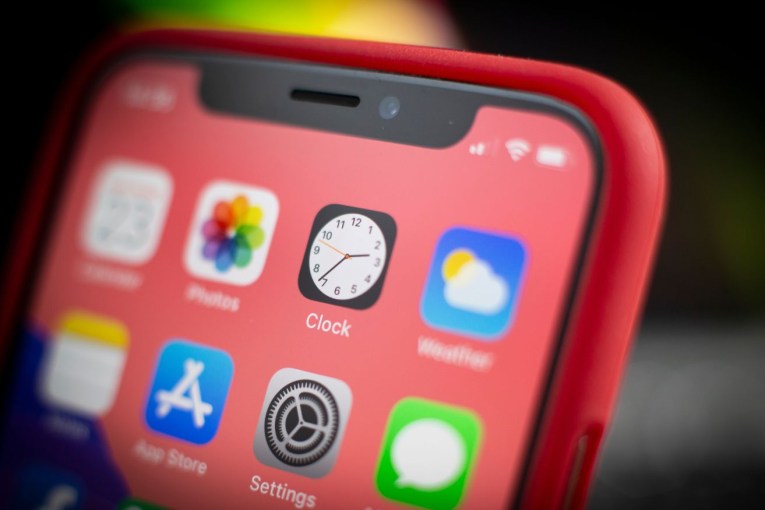The fool-proof guide to staying secure online

Here’s a bold claim: No computer system in the world is truly secure. Even those off the net aren’t immune to infection by virus or hacking. It goes without saying that any information – personal details, user account info or sweet, sweet credit card numbers – held on these networks is likewise up for grabs.
Name any large retail or tech company and chances are they’ve been hacked and mined for user data. It happens more than you realise (We’ll talk about government sanctioned monitoring of social media another time. *nudge-nudge, wink-wink*).
Yes, it’s very tempting to live life off the grid, existing 24/7 in a Faraday cage, but there are ways you can minimise your virtual risk without sacrificing the advantages a life online can bring.
Change Your Passwords
Hand up if you use the same password for every website login you have, or a date of birth, or simply the word ‘password?’ Are you crazy?!
Not a month goes by without a lesson-to-learn story on your local news website about someone who had their life systematically shut down because they used the same password for every account they had. It could happen any time, and by the time you realise your password has been hacked or stolen, you’re likely locked out of your accounts (social media are usually the first to go) and will have a hard time proving your identity, let alone that, no, it wasn’t you posting offensive comments about Obama on your Facebook.
How do you secure yourself online? Try using a random password. Create a random combination of lower and uppercase letters, numbers, symbols and even punctuation. Then use a different password for every website you have an account. If the website you’re using offers two-step verification, use that as well.
There’s also a variety of password management software available, like 1Password, which can do everything from generate passwords to store credit card details and more.
Use a Prepaid Credit Card
If you’ve ever had a credit card stolen, you’ll know the absolute bummer it can be to get the card cancelled and a new one issued. While it takes only a phone call to your bank, the wait for that wafer-thin slice of debt can be a torment worse than sitting in front of an open-mouth eater at the cinema (cue: #firstworldproblem).
Now imagine you’ve no idea the card has been purloined until you’re staring at a bill for the now maxed-out account. This is a potential reality of online shopping.
While the website you bought from may have had security up to its data ports, if the database holding your transaction details gets hacked, your details could then be sold on the Darknet – an internet beneath the internet you use every day – and SWIPE! its open season on your plastic.
But don’t think shopping with the world’s largest organisations will keep you safe: Adobe, Sony PlayStation, Apple and Target have all been hacked in the last 12 months, with millions of account details snaked.
An easy solution is to use a prepaid credit card: Top up the card with the amount you need, use it, and keep it in a draw at home. If your account information is ever compromised, there’s nothing to steal except numbers.
USB Drives
If you think you’re safe by transferring files from work to home and back again via a USB drive, think again. Today’s viruses are so pesky, they’ll jump on board like they’ve just won a free trip on a P&O cruise and bury themselves where your virus software can’t find them. Once there, they’ll infect every computer they get a free ride to.
When you’re choosing antivirus software, look for one that includes a USB drive virus scanner. Every USB drive you use will then be scanned and cleaned when plugged into your computer.
Also, never buy a USB stick (or any hard drive, for that matter) if it looks like a returned product.
No one is safe from being infected in this manner; even the International Space Station was infected recently with a virus from a Russian cosmonaut’s USB stick, proving, in space, no one can hear you scream at your computer.
419 Scams
Confidence tricks, or 419 scams, are basically designed to defraud you of cash, or steal your identity, and usually come in the form of an email, or a phone call. The Nigerian Prince scam is an infamous one; as to is the Spanish Prisoner scam and the generic lottery scam. But the more sinister ones mimic many well-known organisations.
Usually easy to identify, hoax emails are becoming increasingly elaborate, with detailed HTML emails masquerading as authentic communiqués. A click on a link or hitting the reply button could land you in all manner of hot water.
Instead, check with the institution supposedly sending the email to see if it’s legit; use Google or type the web address directly into your browser to get contact information. Most banks also have a page on their website with any known scams they’re aware of.
If the suspected scam comes in the form of a phone call – a popular method is to inform you your computer is currently infected by a virus and the caller is here to help – ensure you don’t give out any personal information, even when the caller appears to have details about you. Most companies require only three personal details to grant access to account information, so anyone with a silver tongue could have you handing over the keys to your kingdom without you ever realising.
—
If you’re ever in doubt about your online security, check the consumer affairs website for your local government.








